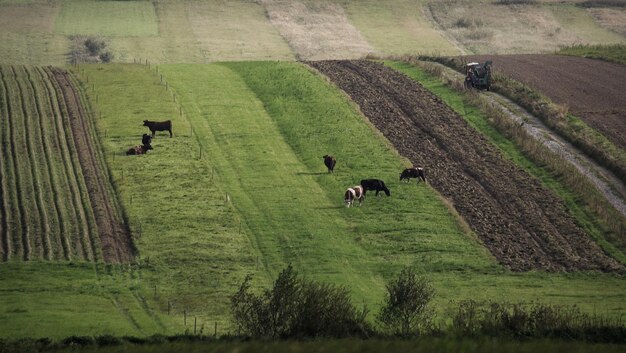Mixed farming, which involves combining crop cultivation with livestock farming, is a popular practice in South Africa due to its ability to diversify income streams and improve resource utilization. However, managing a mixed farming operation can be complex and requires the right tools and equipment to ensure efficiency and productivity. Here’s a guide to effectively managing a mixed farming setup using the right equipment.
1. Assess Your Farming Needs
Before investing in equipment, evaluate the specific requirements of your mixed farming operation. Consider the types of crops you grow, the livestock you keep, and the scale of your farming activities. For instance, a small-scale farm may only need basic tools, while a large-scale operation might require advanced machinery like tractors or combine harvesters.
2. Invest in Multi-Purpose Tractors
A reliable tractor is the backbone of any mixed farming operation. Modern tractors come with a range of attachments, such as plows, seed drills, mowers, and loaders, making them versatile for both crop and livestock management. Opt for a tractor with the right horsepower for your farm size and tasks, ensuring it can handle various operations without overworking the machine.
3. Use Efficient Crop Planting and Harvesting Tools
For crop cultivation, tools like seed planters, sprayers, and combine harvesters are essential. Automated seed planters save time and ensure uniform planting, while sprayers distribute fertilizers or pesticides evenly. Combine harvesters streamline harvesting, reducing labor and time. In South Africa, consider equipment suitable for the crops you grow, whether it’s maize, wheat, or vegetables.
4. Set Up Irrigation Systems for Optimal Water Use
Efficient water management is crucial, especially in South Africa’s water-scarce regions. Drip irrigation systems are ideal for crops, as they deliver water directly to the roots, reducing waste. For livestock, automated waterers ensure animals always have access to clean water. Solar-powered pumps can further enhance water efficiency while reducing energy costs.
5. Prioritize Livestock Handling Equipment
For livestock management, invest in tools that ensure the health and safety of your animals. Cattle crushes, weigh scales, and feeding systems simplify daily tasks. Portable fencing can help manage grazing areas effectively, while livestock trailers facilitate safe transportation. Use monitoring devices, such as RFID tags, to track animal health and productivity.
6. Use Storage and Processing Equipment
Proper storage is vital for preserving harvested crops and animal feed. Grain silos, cold storage units, and hay balers help maintain the quality of your produce. For added value, consider investing in processing equipment such as feed mixers for livestock or milling machines for grain processing. These tools not only reduce waste but also create additional revenue streams.
7. Implement Mechanized Waste Management Solutions
Mixed farming produces both crop residues and animal waste, which can be repurposed into valuable resources. Invest in composting equipment or manure spreaders to turn organic waste into fertilizer for crops. This practice promotes sustainability and reduces the need for chemical inputs.
8. Automate Key Processes with Smart Technology
Automation and smart technology can streamline mixed farming operations. Sensors and IoT devices can monitor soil moisture, crop health, and livestock well-being in real time. Automated feeding systems and irrigation controls reduce labor requirements and optimize resource use. Mobile apps and farm management software help track expenses, yields, and animal health, ensuring better decision-making.
9. Ensure Regular Maintenance of Equipment
Efficient management of mixed farming operations depends on well-maintained equipment. Create a schedule for regular inspections, servicing, and repairs. Keep spare parts on hand to minimize downtime during peak farming seasons. Partner with reliable service providers in South Africa to ensure your machinery stays in optimal condition.
10. Train Your Team on Equipment Usage
Investing in the best equipment is futile without proper training. Ensure that you and your team understand how to operate and maintain the machinery safely. Attend workshops or training sessions offered by equipment suppliers to keep up with the latest innovations and best practices.
Managing a mixed farming operation in South Africa requires a strategic approach and the right tools to balance crop and livestock production efficiently. By investing in versatile machinery, adopting smart technology, and maintaining your equipment, you can streamline operations, improve productivity, and ensure sustainable farming practices. With the right setup, mixed farming can be a rewarding and profitable venture that supports both your livelihood and the agricultural economy.
Join 'Farmers Mag' WhatsApp Channel
Get the latest Farming news and tips delivered straight to your WhatsApp
CLICK HERE TO JOIN






